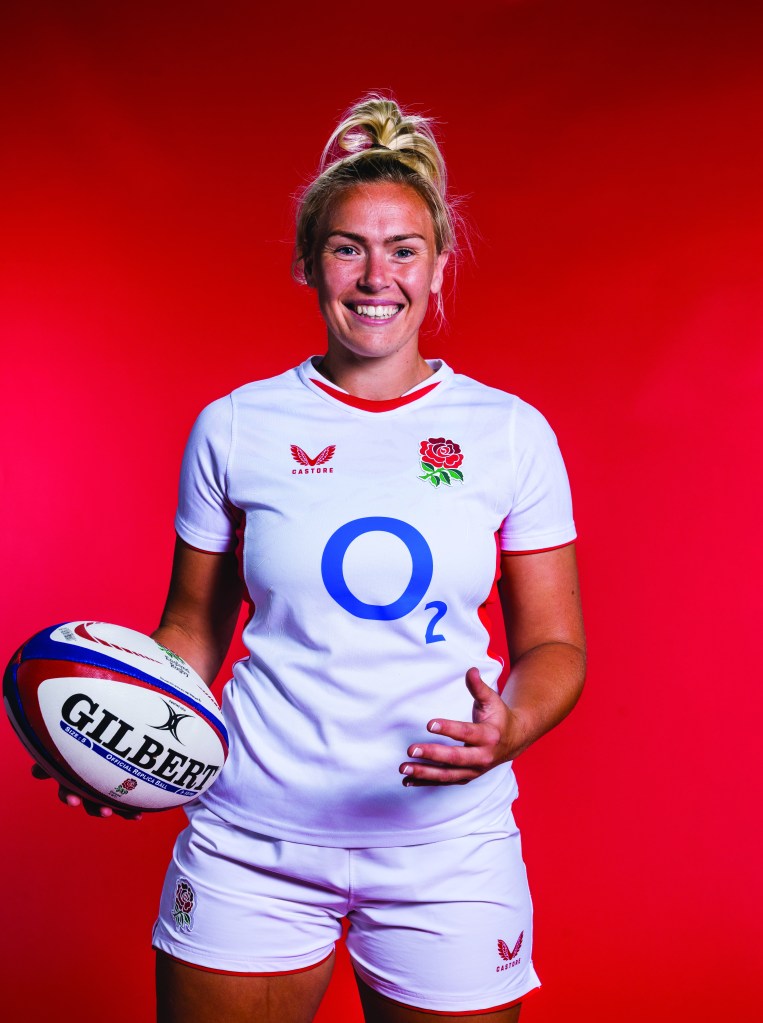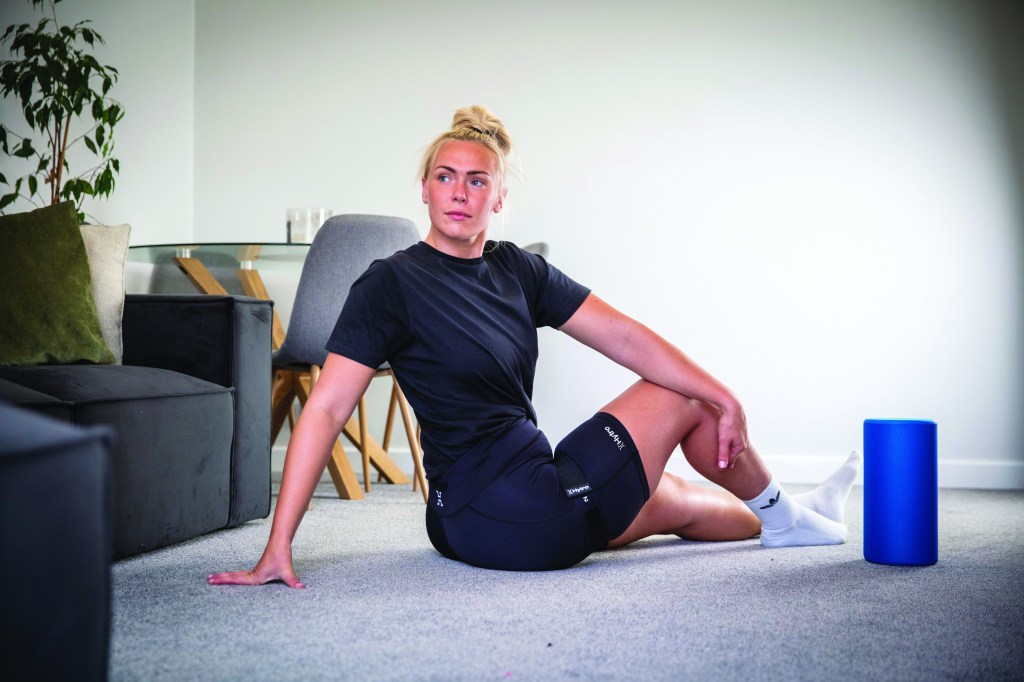A professional rugby player for Saracens and England, Rosie, 27, earned her first international cap at the 2019 Six Nations. Illness and an ankle injury meant she received her second cap over 1,000 days later, during the 2022 Six Nations. Most recently, she competed with England’s Red Roses in the Women’s Rugby World Cup
Words: Joanna Ebsworth | Photography: Hytro, RFU Collection via Getty Image
Early days
Growing up, I played every sport I could, including netball, hockey, cricket and football – I was no footballer, but I loved being part of another team! I only started playing rugby at the age of 16, when my brother needed a girl for his touch rugby team. They received double points if a girl scored and, initially, I was okay with being passed the ball at the end to score. However, by the end of the tournament, I wanted to be involved in the middle of the pitch rather than waiting on the outskirts. So, I joined the girl’s set up at Aylesford Rugby Club, and the rest is history!
Having always had a big build compared to other girls, I felt I’d finally found a sport where I could flourish, express myself, be strong and not be told off for being too bolshy. The rugby pitch was the first place where my body felt accepted for its role and purpose, and that’s the most powerful thing; regardless of your shape or size – whether you’re small, tall, big or tiny – there’s a place and position for everyone.
Training
I play in the second row position, so you’ll see me in the middle of the scrum – known as the ‘engine room’ – pushing to give us the advantage so others can get their glory tries. As a fully contracted England player, rugby is my full-time job, so I don’t have to my fit training around another job like some of my club teammates; club rugby isn’t fully professional, so we often train in the evenings until 10pm. But, hopefully, we’ll see changes soon and the league will go fully professional one day.
Training during an England match week involves a ‘clarity day’ on Monday, where we go through the plays, tactics and analysis of the other team, followed by a gym session. Tuesdays are dedicated to ‘defence day’ practice, and Thursdays involve ‘attack day’ practice, with gym sessions on both days. Developing robustness is key, so our three gym sessions a week include lots of key upper and lower body lifts. In recent years, research into women’s sport surrounding hip and pelvic health has played a massive factor in our training, so we try to support that area when we’re in the low phase of our menstrual cycle to improve our performance and help prevent injury.
Friday is ‘team run’ day, so we’ll go to the pitch we’ll be playing on the next day to get accustomed to it and decide on the boots we’ll wear, so we’re ready to roll on Saturday. Playing for my country and my club is the biggest privilege, and everything I do on and off the pitch goes into those games. I know if I’ve eaten well, trained well and recovered well – and done my homework on both my team and the other team – then I’ll feel really good going into game day.

Recovery
Wednesdays and Sundays are my rest days, and they usually start with a lie-in because sleep is crucial to performance. Then, I’ll start my home recovery routine in my Hytro Blood Flow Restriction Performance Shorts (£229, hytro.com) which have an elasticated band you pull tight to allow blood to flow to your legs while also reducing blood flow out. This basically stresses the muscle to release a recovery hormone and speed up recovery by either forcing the muscle to grow or driving muscle protein synthesis back into it without putting any pressure on the joint or limb.
I usually do three five-minute cycles in front of the TV, while stretching, or doing active recovery on my bike to help flush out toxins. In the moment, restricting blood flow to your legs isn’t a very nice feeling, but once you’ve unstrapped and the blood rushes to your legs, it feels amazing.
Goals
Getting my second England cap after coming back from bacterial meningitis in 2019, and then an ankle injury in 2020, are my proudest moments. I was told if I’d come into hospital a day later with meningitis, I could have potentially been amputated from the waist down. That would have been life changing in itself. So, to be able to prove to myself and others that I can come back from two really significant times of adversity – and go on and become a silver medallist at a World Cup – makes me feel so proud. My next goal is to win the World Cup in front of a sold-out home crowd this summer.
All my teammates and I want to create history and hopefully change the sport for the better: not only for girls, but for boys as well. Putting rugby on the map and hopefully leaving a lasting legacy, like the Lionesses have done after their last Euros campaign, is what we want to do, too. We have a phenomenal national team, and being able to showcase that to our home nation this year is going to be incredible.

Rosie Galligan is an ambassador of Hytro, the pioneering BFR (blood flow restriction) wearables brand. Scientifically proven to enhance performance and accelerate recovery, Hytro is trusted by hundreds of elite sports teams worldwide and is empowering athletes at every level to train smarter. Learn more at hytro.com







